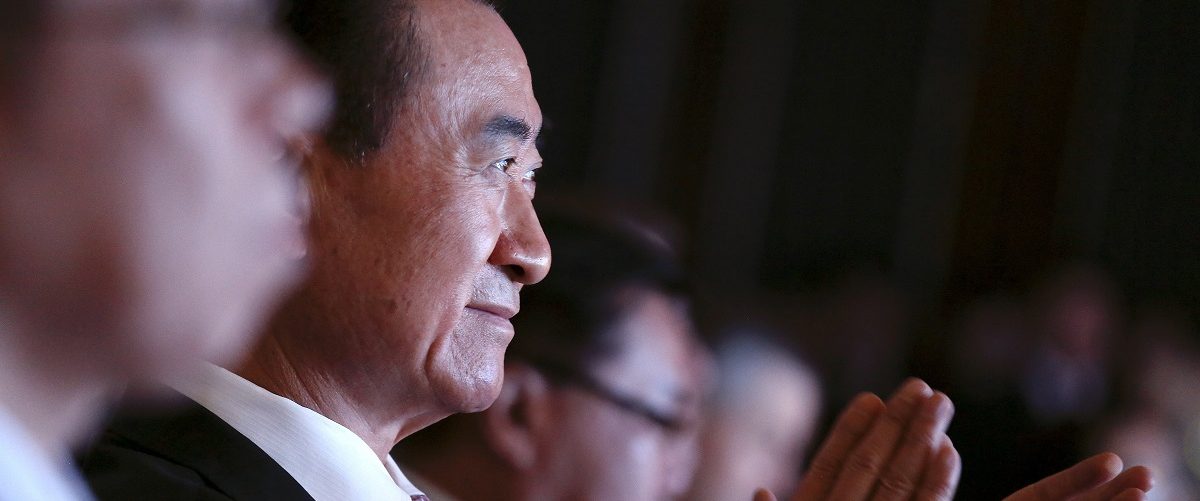By RICHARD BERMAN
 China's Goebbels Wang Jianlin
China's Goebbels Wang JianlinAMC Entertainment. Carmike Cinemas. Legendary Entertainment. Lionsgate Corporation. Paramount Pictures.
They are mainstays of America’s movie industry, either producing content or distributing it to the masses.
But these film studios and movie theater chains are tied tighter together through a Chinese businessman with infinite ambitions: Wang Jianlin, the founder and chairman of Dalian Wanda.
To most Americans, Dalian Wanda, a Chinese firm owned by Wang—China’s wealthiest man—remains an unknown.
To most Americans, Dalian Wanda, a Chinese firm owned by Wang—China’s wealthiest man—remains an unknown.
Yet Wanda has emerged as a global player determined to consolidate the U.S. movie industry under one parent company.
In 2012, Wanda bought AMC—the second largest movie theater chain in the country—for $2.6 billion.
It purchased Legendary—the producer of The Dark Knight Trilogy—for an even heftier $3.5 billion in January of this year.
Wanda-owned AMC now plans to buy Carmike for $1.2 billion, forming the country’s largest chain with 8,380 screens in more than 600 theaters.
The company has also shown interest in buying at least a portion of Lionsgate and Paramount—if not all of Hollywood’s “Big Six” studios.
On the surface, Wanda’s motivations are monetary.
On the surface, Wanda’s motivations are monetary.
Wang strives to turn Wanda into “a juggernaut” in the movie industry through high-dollar mergers and acquisitions—granting him greater control of major production and distribution channels.
Wang’s incendiary rhetoric against Disney—one of Wanda’s major competitors in the entertainment tourism space—confirms his relentless pursuit of greater market share.
In his words: “We want to smash them. It’s not personal—it’s where the interest of the company lies.” (Wang has likened Disney to “one tiger” competing against his “pack of wolves.”)
But his ambitions transcend buttered popcorn and glitzy theme parks.
But his ambitions transcend buttered popcorn and glitzy theme parks.
A former Communist deputy, Wang has steered at least $1.1 billion in government subsidies to Wanda.
He has sold company stakes to relatives of China’s most powerful politicians and business executives, including the business partner of former Prime Minister Wen Jiabao’s daughter and relatives of two members of the Politburo—the Communist Party’s principal policymaking committee.
Qi Qiaoqiao, the elder sister of Xi Jinping, was also an early Wanda investor.
Wang’s connections to China’s political elite signal his broader agenda: Promote Chinese propaganda.
Wang’s connections to China’s political elite signal his broader agenda: Promote Chinese propaganda.
In recent years, Xi has vowed to promote China’s “cultural soft power,” specifically in the realm of “international communication.”
To that end, Communist officials have pledged government support to Wanda and other companies making cultural inroads abroad.
As Wang admits, the soft-power policy—spreading favorable and stifling unfavorable depictions of China—is “very beneficial” to Wanda’s bottom line.
It blurs the line between Wanda’s interests and the Chinese government’s.
It blurs the line between Wanda’s interests and the Chinese government’s.
Shortly after acquiring Legendary in January, company officials called it “China’s largest cross-border cultural acquisition to date.”
With it, Wanda acquires the ability to influence the development of movie scripts, heaping praise onto the Chinese government and tempering criticism where Wang sees fit.
History is rife with examples of movies altered pre-release to appease Chinese censors, which force filmmakers to rewrite scripts according to the Communist Party’s wishes if they hope to gain entry into China’s lucrative market.
With it, Wanda acquires the ability to influence the development of movie scripts, heaping praise onto the Chinese government and tempering criticism where Wang sees fit.
History is rife with examples of movies altered pre-release to appease Chinese censors, which force filmmakers to rewrite scripts according to the Communist Party’s wishes if they hope to gain entry into China’s lucrative market.
Pixels—the 2015 action-comedy flick—initially depicted aliens blasting a hole in the Great Wall.
The scene was removed entirely from the final version of the movie.
Similarly, the 2012 remake of Red Dawn originally featured Chinese soldiers invading an American town.
Producers changed the invaders into North Koreans without even receiving a formal complaint from Beijing.
Wanda seeks greater sway in the creative process.
Wanda seeks greater sway in the creative process.
Wang’s company recently bankrolled Southpaw’s $25 million production budget, becoming the first Chinese firm to “solely finance an American movie.”
And it left fingerprints everywhere.
According to David Glasser, who helped produce and market the film, “(Wanda was) involved — it wasn’t just a silent investment.”
Glasser went even further: “They were on the set and involved in production, postproduction, marketing, everything.”
“Everything” includes distribution, which undergirds Wang’s interest in an AMC-Carmike merger. Controlling America’s largest movie theater chain allows the Chinese businessman to dictate much of what gets shown in the U.S.—and what doesn’t.
“Everything” includes distribution, which undergirds Wang’s interest in an AMC-Carmike merger. Controlling America’s largest movie theater chain allows the Chinese businessman to dictate much of what gets shown in the U.S.—and what doesn’t.
It’s no surprise that AMC’s cinemas showed no Chinese films before Wanda’s takeover, yet now put on double-digit productions every year.
As Wang points out, “More Chinese films should be in…theaters where possible.”
Could that include a new war movie called South China Sea?
All signs point to no.
Could that include a new war movie called South China Sea?
All signs point to no.
Aucun commentaire:
Enregistrer un commentaire